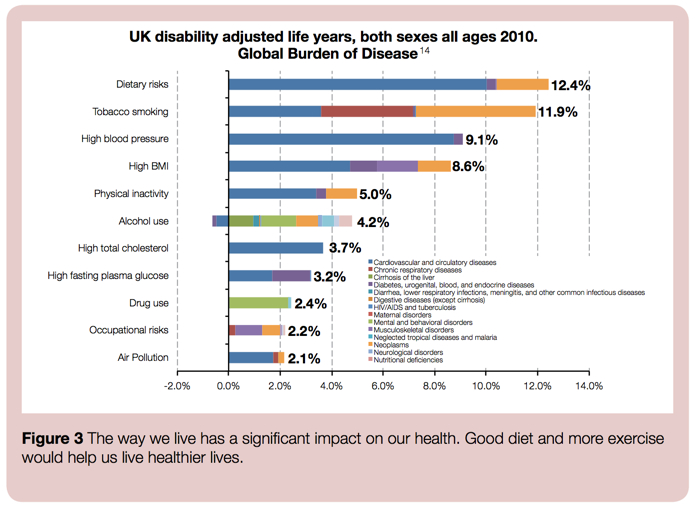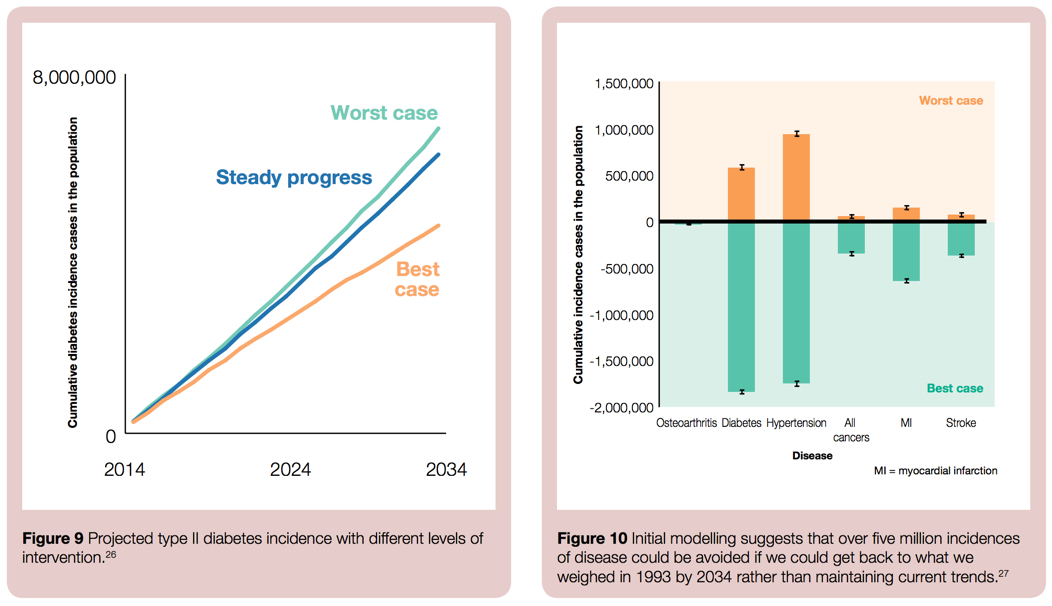A profound impact on the health of the population
Obesity is responsible for more than 9,000 premature deaths each year in England, reduces life expectancy on average by nine years, and is a major risk factor in wide range of serious health problems including Type 2 diabetes (5 x), cancer (3 x the risk of colon cancer), and heart disease (2.5 x).

Source: Public Health England [9]
Compared with a non-obese man, an obese man is:
- five times more likely to develop type 2 diabetes
- three times more likely to develop cancer of the colon
- more than two and a half times more likely to develop high blood pressure – a major risk factor for stroke and heart disease.
An obese woman, compared with a non-obese woman, is:
- almost thirteen times more likely to develop type 2 diabetes
- more than four times more likely to develop high blood pressure
- more than three times more likely to have a heart attack.
Risks of other diseases, including angina, gall bladder disease, liver disease, ovarian cancer, osteoarthritis and stroke, are also increased.
If current trends persist, one in three people will be obese by 2034 and one in ten will develop type II diabetes (Figure 9, below); whereas, reducing obesity back to 1993 levels, would avoid five million cases of disease (Figure 10, below).

Source: Public Health England [9]
- Around 58% of type 2 diabetes, 21% of heart disease and between 8% and 42% of certain cancers (endometrial, breast, and colon) are attributable to excess body fat.
- Obesity reduces life expectancy by an average 9 years and is responsible for 9,000 premature deaths a year in England.
- In addition, people who are obese can experience stigmatisation and bullying, which can lead to depression and low self-esteem. [1]